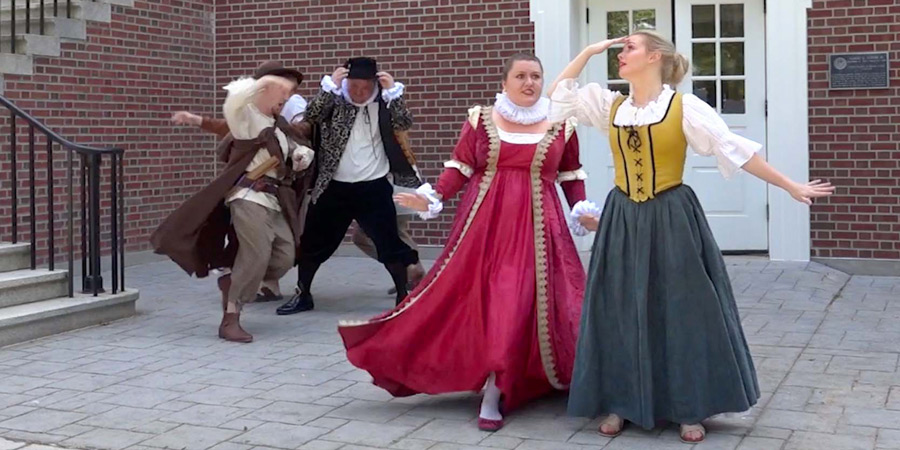UNIVERSIDAD DEL VALLE DE ATEMAJAC (UNIVA)
The Universidad del Valle de Atemajac (UNIVA) is a young private university committed to building a strong international student educational program that supports its mission of providing an alternative to state-sponsored higher education. This program is still evolving, and UNIVA provides considerable flexibility in arranging individualized programs and meeting the needs of its growing international student population.
UNIVA faculty welcome students from other lands in their classes, but because the language of instruction at UNIVA is Spanish, they expect students to be fairly fluent in Spanish. While English-speaking peers and staff may provide assistance, Hanover students cannot expect to rely on the English-language skills of a faculty that has members who do not speak English. Therefore, Hanover students must demonstrate acceptable Spanish skills in order to participate in the program.
UNIVA has programs in business communication, computer science, Spanish, psychology, and graphic arts, all of which offer both basic and advanced courses suited to Hanover students. A program in literature is being developed, and additional programs of study are under consideration. Courses likely to satisfy Hanover LADR courses can be found in fine arts, science, non-western culture, mathematics, statistics, literature, and social sciences.
The student is the center of UNIVA’s focus, and UNIVA courses stress interactive learning. The teacher acts as a facilitator, but students are expected to do a lot of out-of-class preparation. Courses are rarely textbook-driven, but rather emphasize active learning in the classroom. Students regularly work as teams and are frequently responsible for making in-class presentations. This teaching style has students participating actively in the course, contrasting it with European models that focus on lectures and extensive independent study.
Each day is divided into three blocks (morning, afternoon, and night), and a typical class meets four to five hours per week. University rules require at least three evaluations per term called “partials,” be they papers or exams. A typical course has one or two midterms and a final exam. Courses range in size from 15 to 30, and students may enroll in three to seven courses per term.
Given the different educational system in Mexico and the variations in course design and execution, students should seek courses that supplement, rather than duplicate, Hanover’s offerings. If students with to substitute an UNIVA course for a Hanover course, they should make sure the courses are comparable.
All Hanover students are required to take a course on Mexican economy, society, and culture. This course is taught every term, and typically has 15 to 20 students enrolled per section. The course includes substantial discussion and generally requires a lot of outside research. The business curriculum also offers a number of interesting courses not available at Hanover College, including negotiation strategy, international negotiations, international commercial relations, and market research.
THE CLASSES
UNIVA’s classroom, laboratory, computer, and library facilities meet the needs of its students, though the different class format requires facilities that differ from those in the US. For instance, centering classes on discussions based on prescribed books reduces the need for large librarires. UNIVA’s library is smaller than American equivalents and does not support the type of independent research expected at Hanover College, since this type of research is not expect in the classes at UNIVA.
UNIVA offers extracurricular programs in sports (soccer, basketball, track, swimming, tae kwon do, aerobics, cheerleading, and volleyball) for both men and women, as well as a theater group, drawing workshops, chorus, and folk dancing. As a university with a Roman Catholic foundation, mass and prayer services are available daily. A campus health center with set hours handles first aid and basic health care, with referrals to local hospitals and clinics as needed. The Director of Academic Exchanges orients new international students and assists them with their living and campus needs.
THE SETTING
UNIVA is set in Zapopan, a suburb of Guadalajara, Mexico’s second-largest city. Its urban location and modern concrete buildings contrast greatly with Hanover’s park-like rural setting, and provides a visual reminder of the novel experience afforded our students.
HOUSING
UNIVA does not have on-campus student accommodations; rather, students must find off-campus accommodations. The University helps the international students find living arrangements either in a single family or in group settings. In single-family living arrangements, the host family accommodates one or two exchange students who share a room. Meals are provided, and families typically include students in their activities. Group houses have six international students living together, with two students sharing a bedroom. Meals are provided, but students must be more self-reliant in scheduling outside activities. It is worth noting that Hanover faculty and students alike have been very impressed with the quality of both styles of living arrangements, especially for their appropriateness for Hanover students seeking to be immersed in Mexican culture.
ACADEMIC CALENDAR
UNIVA’s calendar corresponds nicely with Hanover’s. Its academic year consists of three sessions: early January through late April (Hanover’s Winter Term), early May through late August (Hanover’s Spring Term and summer), and early September through mid-December (Hanover’s Fall Term).
APPLICATION PROCESS AND DEADLINES
The application process is initiated through the Spanish Department. The application procedure is necessarily lengthy, due to the requirements of international study and the need to maintain satisfactory progress toward graduation from Hanover. The application deadlines are strictly enforced. Students are urged to contact the Study Abroad Office for an Application for Off-Campus Study. Consult your academic advisors or the study abroad advisor early in your career, so that you can plan ahead. Studying off-campus for a term requires careful planning to ensure timely completion of the Liberal Arts Degree Requirements and major course requirements.
SPECIAL REQUIREMENTS
- Obtain a passport and visa. See the Study Abroad Office for information on obtaining these documents.
- Purchase an International Student Identity Card (ISIC). The holder is eligible for basic medical, accident, and illness insurance, and gains a variety of discounts.
- Maintain a 2.50 or better GPA.
- Complete SPA 227 or 228 with a “B” or better and demonstrate competence in Spanish to the Hanover Spanish faculty.
- Enroll in the Mexican Society, Economy, and Culture course, plus an advanced Spanish language course.
ON-CAMPUS EXPERTS
Our faculty that have visited UNIVA include Drs. Dodge, Graham, Santa Cruz and Thornton, who will be happy to answer your questions.
Visit UNIVA at: http://www.univa.mx



